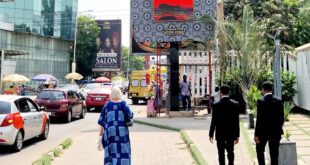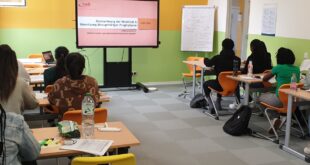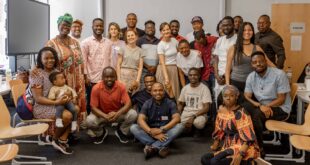Education is considered an investment in human capital. That is why every country allots a budget in order for its citizens to have access to learning. Some countries make it a top priority, apportioning a larger portion of the national budget to education. Other countries, due to poverty, cannot afford to budget so generously. According to Africa Learning Barometer, about 40% of school-aged African children do not learn according to their grade level. They don’t learn basic skills by the end of primary school, which has an impact on later life. So how can kids in African countries do better in school?
Make the classroom conducive to learning
A classroom can be anywhere. If there is not enough budget to build classrooms, nature can be a valuable resource in teaching. One of the main reasons that kids hate school is that they feel overwhelmed by information, and when they feel that they are constricted in a small room, this problem can be exacerbated. Children can only concentrate for small periods at a time, so getting outside regularly can have a huge benefit.
While there are times that children need to be in a closed area, adjustments should be made where possible to keep them engaged in their learning. It is worth remembering that children are always learning: while they are playing sports; while they are falling in line to get food; while they’re interacting with their teacher and peers. Even when they are not formally learning, they are consolidating their understanding and applying new information to daily life.
Include practical skills and digital learning
While academic subjects are good for a child’s cognitive development, teaching them practical ways to survive should also be given much attention. Vocational courses on cooking using local produce, carpentry, sewing, and other life skills that can be useful in their place of residence, should be included.
On the other side of the coin, technology has its way of awakening the curiosity in a child. Teaching them the basics while pointing out that, just like the computer, there are so many possibilities that are waiting for them to discover can be inspiring to a child. Teaching them how they can reach the world via the internet and how deep their knowledge about a certain topic can be using search engines is a powerful tool, but in order for African schools to harness the potential of technology, funding must be available.
Gather funds
While talented and dedicated teachers can be readily pulled out, these visions cannot be realized without funds and support by the government. There are also private organizations and individuals who are willing to support educational causes. Fighting to make education a priority is a must if schools are to be properly equipped and resources for teaching are to be available.
This is also necessary in the small details of daily school life – including meal times. It is difficult for a child to concentrate when the stomach is growling with hunger. Children want to learn, but unless they’re properly nourished, it is difficult for them to learn anything. It’s difficult to focus and retain information when you go to school on an empty stomach, so having access to nutritious food is a must for school children. This must also be factored into funding.
A child’s attitude to school depends on their environment, and this means that leaders must value education as a means of pulling out a country from poverty, and making it a priority when it comes to funding. Today’s children are Africa’s future leaders: with the right education, they can change the system, and elevate the standard of living across African countries.
Sara O’Hare
 THE AFRICAN COURIER. Reporting Africa and its Diaspora! The African Courier is an international magazine published in Germany to report on Africa and the Diaspora African experience. The first issue of the bimonthly magazine appeared on the newsstands on 15 February 1998. The African Courier is a communication forum for European-African political, economic and cultural exchanges, and a voice for Africa in Europe.
THE AFRICAN COURIER. Reporting Africa and its Diaspora! The African Courier is an international magazine published in Germany to report on Africa and the Diaspora African experience. The first issue of the bimonthly magazine appeared on the newsstands on 15 February 1998. The African Courier is a communication forum for European-African political, economic and cultural exchanges, and a voice for Africa in Europe.

















